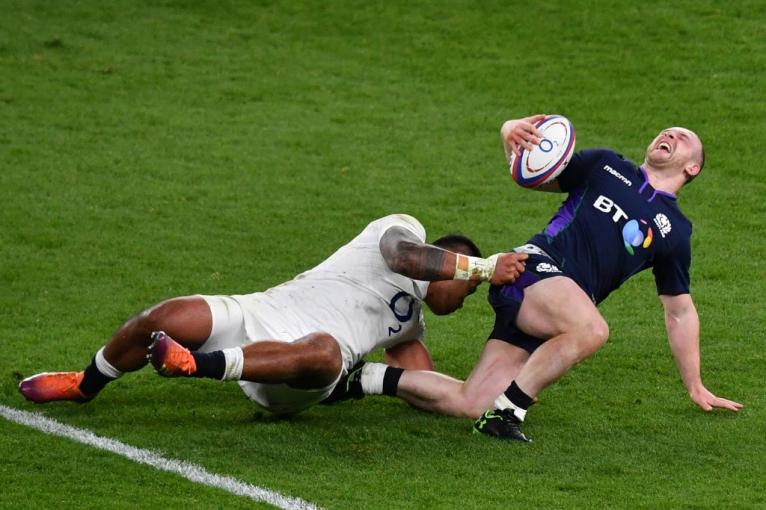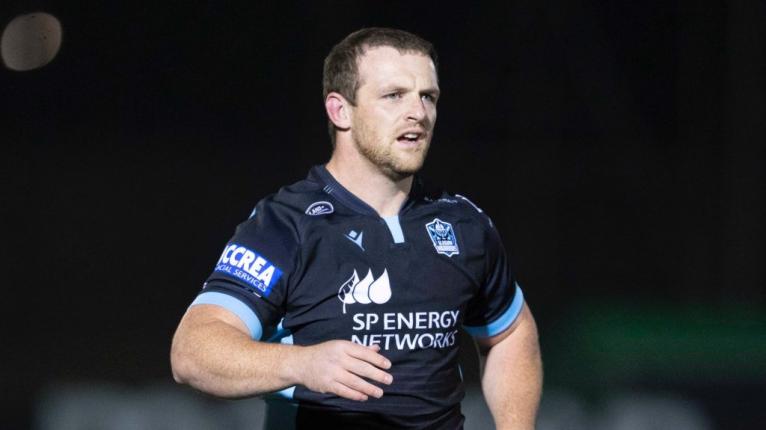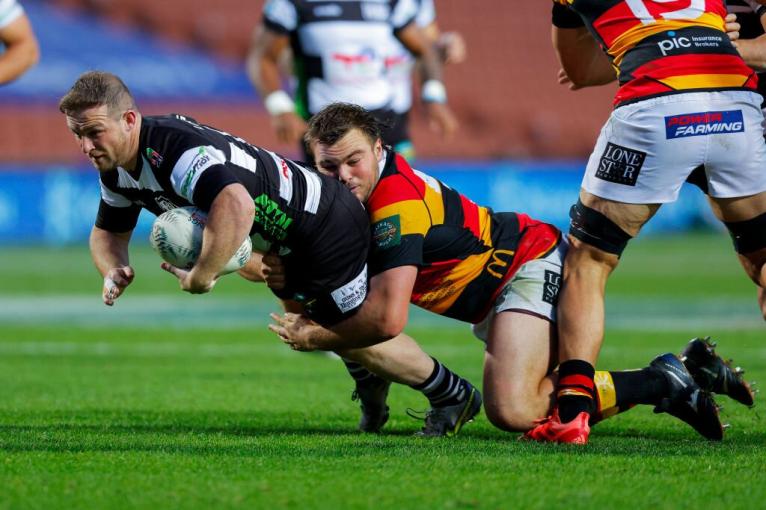Four years ago, Nick Grigg stood panting under the Twickenham posts, senses assaulted, mind spinning, horror erupting all around.
Thirty-one minutes gone. Thirty-one unanswered English points. Home fans baying for 100. All of Scotland’s most heinous nightmares unfolding before his eyes. At half-time, the away changing room was like a mausoleum, its deathly silence punctured by a simmering Gregor Townsend.
“We were getting pumped, standing in the in-goal area wondering what the hell we were going to do,” Grigg says. “The scoreline was embarrassing. Everyone was shell-shocked. We got a bit of a bollocking at half-time from Gregor. Sometimes the team needs a rocket up the arse to snap out of it.
“You don’t see Gregor lose his rag too much. But you have to do something in that situation to get some momentum or energy from the guys. He wasn’t going nuts but there were stern words.”
What happened next is the stuff of legend, cementing this night of bonkerdom as the greatest Calcutta Cup duel in the fixture’s 152 years. From 31-7 down at the break, Scotland screamed back to score four more tries and lead 38-31 before George Ford rescued England at the death. The Scottish resurrection was inspired by Finn Russell on one of those days when the gilded playmaker is untouchable, when he has the game in the palm of his hand and a flailing defence on puppet strings. Russell and Townsend have endured a very publicly strained relationship in recent years. Though bridges, mercifully, have been rebuilt, in the bowels of Twickenham they disagreed on how best to fight back. Russell, unsurprisingly, wanted to run.
Matt Taylor, our defence coach for Scotland, would always be trying to get me angry before games, saying, ‘I need you to get angry and take it out on someone’. I just couldn’t do it.
“When Finn’s on fire, he’s not really matched by any other 10 out there,” Grigg says. “Him and Gregor have butted heads over the years, but everyone knows there are a lot of smart kicking options nowadays, mixed with offloads and fast ball to get the best outcomes. The strategy was to kick a lot more but Finn wanted to play and if you get a mix of the two, it tends to click. Finn wanted to play a lot more and we did, but there were also a lot of smart kicking options.”
Grigg spent three seasons with Russell at Glasgow, and played outside him for three of his nine caps. That Twickenham showpiece remains his most recent Test. Strong-running but easy-going, Grigg meshed well with Russell’s relaxed vibe.
“You can get 10s who might not be as chilled as Finn and I don’t like it if someone yells at you on the field.
“Matt Taylor, our defence coach for Scotland, would always be trying to get me angry before games, saying, ‘I need you to get angry and take it out on someone’. I just couldn’t do it. I’m obviously going to hit hard and run hard but I can’t get angry and aggressive and yell at people, it’s not me. I guess that’s the same with Finn, he likes to have a joke, he’s quite cool and calm on the field and that works for him most of the time. Why try and change that?”

Grigg’s own path to Test honours and beyond has been eventful. A Wellington boy, he fetched up in Glasgow eight years ago thanks to an eye-catching highlights reel and a Scottish grandparent. He was farmed out to Stirling County where he partnered fellow Antipodean recruit Sam Johnson for club matches. The pair would go on to represent Glasgow and Scotland together in a dynamic midfield. They were the starters at Twickenham. Johnson’s 40m lung-buster looked and felt like the winning score before Ford snatched the game from the fire.
“It was insane to be a part of,” Grigg goes on. “You can barely hear the person next to you on the field. Some of the best experiences of my life were playing for Scotland in big stadiums like that.
“I actually caught up with Gregor when I was back in Glasgow recently. It was nice to talk to him outside of rugby and say thanks. He said I’d worked hard for it, which I had, but he gave me the initial opportunity and it changed my life and the direction of how I’ve lived over the last seven or eight years.”
Since leaving Glasgow 13 months ago, Grigg has embarked on a whistlestop tour of three rugby nations. He joined NTT Docomo Red Hurricanes Osaka in the Japanese top flight, but a club amalgamation cut short his stay. He went home to New Zealand and played NPC for Hawke’s Bay, then it was off to ProD2 battlers Carcassonne in the south of France where he will see out the season.
I went and watched sumo wrestling, that was pretty cool. I would get absolutely mangled if I tried it. These guys are like 100KG heavier than me and they are so flexible, they can do the splits.
“The Japanese thing was a bit of a shame, because I was hoping to stay a bit longer, maybe one more year, but they merged with Greig Laidlaw’s team and there was a massive pool of foreigners to fit into this one squad and I unfortunately missed out.
“They set all the foreigners up in an apartment building in Osaka, but because I couldn’t get in for two months due to the covid regulations, they didn’t have any apartments left. They managed to find this apartment right in the middle of town, next to the nightclubs, shops, food areas, touristy stuff. I had a month at the end of the season travelling round Japan; an awesome experience.”
Grigg has made a career out of steamrolling, scything and generally outfighting significantly larger opponents, but he drew the line at trying Japan’s most cherished sport.
“I went and watched sumo wrestling, that was pretty cool. I would get absolutely mangled if I tried it. These guys are like 100KG heavier than me and they are so flexible, they can do the splits. They are just massive giants; tall, fat. It’s a whole-day event.”
His Glasgow days remain dear. It was there he came of age as a rugby player and a young man living abroad. A squat, explosive centre, he was nurtured by Townsend and coveted by Dave Rennie. He featured in some of Warriors’ biggest games, often ahead of more illustrious and more seasoned Test operators. Even the great Brian O’Driscoll once remarked: “Nick Grigg must be one of the defensive centres around at the minute. He might have the look of a guy playing J3s but his tackle technique is top class.” If Grigg’s appearance was earthy, his choice of vehicle to buzz around the cosmopolitan West End did little to dispel the image.

“We got these lease deals with Mercedes and obviously I went over there and asked for the cheapest possible car. They owned Smart so I ended up getting a wee two-door. I had a big ladder in there once, a few cupboards from IKEA. You could park vertically into horizontal spaces which was probably the best hack they have. That’s how I got the girls back in the day.”
There were also uproarious, occasionally infamous, Glasgow socials.
“The end-of-season dos were the biggest ones. At least three days of drinking and being hooligans. We went to the West Brewery one time, that got a bit out of control.
“Another year, we were in this pub that I won’t name, and Nick Frisby was getting boys to run straight at him, one-on-one tackling. That was pretty loose. He ended up getting knocked out by someone I won’t name. That was not good. He was practising his tackle technique, and his technique went out the window. This was day three of the bender.”
Yesterday, the forwards were doing scrum practice with the forwards coach and the head coach comes over and lights a firework while they’re scrumming.
Carcassonne is by no means a haven from this kind of bedlam. The ProD2 is a sleeker, more professional operation these days but there are vestiges of the old school. France harbours the last of the rugby berserkers.
“Different, I guess, is the word to use. Yesterday, the forwards were doing scrum practice with the forwards coach and the head coach comes over and lights a firework while they’re scrumming. He put it top of the scrum machine and it blows off. He just laughs to himself and walks off. The forwards coach is like, ‘what the hell’s going on?’ That’s pretty rogue, eh?
“It’s night and day between losing and winning. If you lose, you’re doing Test-match Mondays and Tuesdays at training. If you win, you’ve got a bloody marching band in your changing rooms after. You’ve just got to take the pros and cons here. There are a load of pros – amazing food, people are nice, they respect it if you try to speak French, all the foreigners and French guys get along well, and it’s a good spot to be in – but it can be a bit loose.”
Come summertime, his stay in Carcassonne will be up. Grigg, now 30, is searching for a new home and open-minded about where that may be. There have been nibbles from Wales, but the regions continue to wait for their budget allocations from the troubled WRU.
“I’d really like to head back to the UK,” he says. “The culture is quite similar to New Zealand, I really enjoyed playing there, I had a lot of really good times. Japan was amazing. Those opportunities are quite hard to come by but it’d be awesome to go back.
“A couple of clubs have shown interest but it’s just chat until there’s a contract in front of you. I’ve been playing quite well so if I can take that form into some other competition. I don’t really know what’s going on with Carcassonne because they’re changing coaches and presidents but if I’m being honest, I’m looking to head elsewhere.”

In his apartment in the Pyrenean foothills, Grigg reflects on the travels and the friendships and the wonder the game has given him. He thinks of Twickenham and the Calcutta Cup. Japan and the sumo wrestlers. France and the fireworks. The road he’s been on and the road he has still to travel.
He spent a few December days ambling down memory lane, visiting Glasgow and staying in Ryan Wilson’s opulent Bearsden forever home. Wilson’s children are big fans of ‘Uncle Squigz”.
“He built this house from scratch. I was meant to be in the extension but it turned out to be a two-storey building out the back. He demolished everything upstairs except the toilet, and there’s a picture of me sitting on it for the last time.
“I do miss living in Glasgow, even with the weather and cold, as crazy as it sounds. If I’d stayed in New Zealand and just had a normal job, I’d have been comfortable, but this was the dream I’d had since I was young, to play professional rugby, experience a new culture and a new place that became my second home, and now feels like my second family.”


Didn’t realise he was only 30, still a bit surprised he left Glasgow when he did.